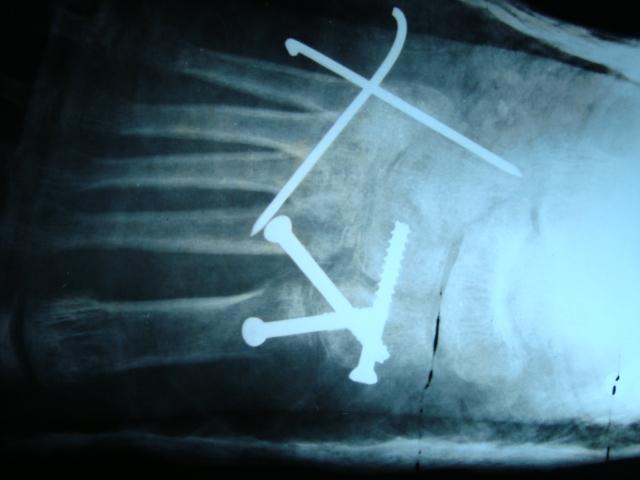Elderly orthopaedic individuals are highly vulnerable to developing delirium in the ICU setting, especially during orthopaedic interventions. The article highlights the need for multidisciplinary roles, timely psychiatric intervention, and psychosocial support.
Dr. Janki Sharan Bhadani, Department of Orthopaedics, Paras HMRI Hospital, OPD No.4, Patna- 800014, Bihar, India. E-mail: jsbhadani@gmail.com
Delirium is a common yet often overlooked condition among elderly orthopedic patients. This significantly impact their recovery and overall outcome. It is an acute and fluctuating disturbance in attention and cognition. [1]. It is characterized by a sudden change in attention and cognition, developing over a short period. With the increasing number of elderly and frail patients requiring joint arthroplasty for osteoarthritis or surgical intervention for osteoporotic fractures. It is an increasing and difficult problem to deal with. It may lead to increased mortality, contribute to long-term cognitive decline, and diminished functional recovery. It often leads to more extended hospital stays, higher readmission rates and so, elevated healthcare costs. With an ageing population, developing effective strategies to manage and mitigate delirium in this vulnerable group is imperative. As healthcare providers, it is crucial to adopt a multifaceted approach to managing this condition effectively. This editorial explores the necessity of a multidisciplinary approach to managing delirium in elderly orthopedic patients, drawing insights from recent and relevant research studies, like the special orthopedic geriatrics model [2].
In elderly patients, it can result from various factors, including advanced age, multiple comorbidities preexisting cognitive impairment, and sensory deficits. Inadequate pain management and unnecessary hospitalization are major precipitating factors. Orthopedic patients face additional challenges such as pain, immobility, surgical stress, and anesthesia which can exacerbate the risk of delirium [3].
Early recognition of delirium is vital for effective management. Nurses and caregivers are pivotal in identifying the early signs of delirium, such as sudden confusion, agitation, or withdrawal and disorganized thinking. However, in elderly patients, these symptoms may be mistakenly attributed to pre-existing dementia or deemed as “normal” aging behaviors, leading to delayed diagnosis. Adequate sensitization to nursing staff and residents involved in patients care and skills to utilize standardized screening and severity assessment tools for delirium such as the nursing delirium screening scale, confusion assessment method (CAM), CAM for intensive care unit, and delirium rating scale-revised-98 can aid in the timely and accurate diagnosis of delirium, enabling prompt intervention [3]. (Fig. 1).
Implementing a multidisciplinary approach, coordination, and effective communication are the keys to managing delirium in a timely manner. Resource limitations and effective coordination at varying levels of team engagement across multiple disciplines are challenges. Strategies to overcome these barriers include adequate on-going education and frequent training for team members involved in the care of these patients. Implement various pharmacological, non-pharmacologic, and environmental modification strategies involving a multidisciplinary approach warrant a dedicated setup equipped with customizable environmental cues such as adjustable lighting mimicking diurnal change in light intensity and exposure to regularize circadian rhythm, minimizing noise, orientation cues (e.g., clock and calendar), and other assistance accessories for elderly for the early mobilization [3-5]. A multidisciplinary approach, including liaison with a psychiatry specialty to address the patient’s immediate symptoms and longitudinal emotional and psychological well-being, has been shown to improve the outcome of delirium in elderly people [3,5]. Pharmacologic management commonly includes the use of low-dose antipsychotic medication such as haloperidol, quetiapine, and olanzapine, which is consciously used and monitored in elderly patients due to their higher propensities for side effects [3]. Ensuring proper hydration and adequate oxygenation is essential for maintaining overall physiological stability, which supports cognitive function. In addition, maintaining optimal cerebral circulation is crucial for sustaining brain health and mitigating the risk of delirium [3]. Addressing other potential contributing factors – such as infections, medication side effects, and environmental changes – further enhances patient outcomes. Building a trusting relationship, providing consistent and clear communication, and engaging patients in meaningful activities could potentially improve the outcome of delirium in the elderly undergoing orthopedic interventions [1-5]. Implementing multicomponent care protocols, including pain management, nutritional support, and sleep optimization, significantly reduces incidences of delirium [1-5]. Such protocols should be tailored to each patient’s needs, ensuring a holistic approach to care. A stepped-wedge cluster randomized trial demonstrated that a structured delirium prevention program significantly reduced post-operative delirium incidence and duration in elderly patients undergoing various surgical procedures [5].
Delirium in elderly orthopaedic patients is a complex and multifaceted issue requiring a comprehensive and compassionate approach. By combining early recognition, addressing predisposing and precipitating factors, employing pharmacologic and non-pharmacologic interventions, and implementing multi-component care protocols, we can improve outcomes for these vulnerable patients. A multidisciplinary approach, integrating pre-operative optimization, perioperative management, and post-operative care, is crucial in mitigating the risks of delirium and improving patient outcomes. Future research should focus on identifying gaps in current knowledge and exploring innovative solutions to enhance multidisciplinary care.
References
- 1.Zhou Q, Zhou X, Zhang Y, Hou M, Tian X, Yang H, et al. Predictors of postoperative delirium in elderly patients following total hip and knee arthroplasty: A systematic review and meta-analysis. BMC Musculoskelet Disord 2021;22:945. [Google Scholar]
- 2.Kappenschneider T, Maderbacher G, Weber M, Greimel F, Holzapfel D, Parik L, et al. Special orthopaedic geriatrics (SOG)-a new multiprofessional care model for elderly patients in elective orthopaedic surgery: A study protocol for a prospective randomized controlled trial of a multimodal intervention in frail patients with hip and knee replacement. BMC Musculoskelet Disord 2022;23:1079. [Google Scholar]
- 3.Grover S, Avasthi A. Clinical practice guidelines for management of delirium in elderly. Indian J Psychiatry 2018;60:S329-40. [Google Scholar]
- 4.Mosk C, Mus M, Vroemen J, Van der Ploeg T, Vos D, Elmans L, et al. Dementia and delirium, the outcomes in elderly hip fracture patients. Clin Interv Aging 2017;12:421-30. [Google Scholar]
- 5.Deeken F, Sánchez A, Rapp MA, Denkinger M, Brefka S, Spank J, et al. Outcomes of a delirium prevention program in older persons after elective surgery. A Stepped-Wedge cluster randomized clinical trial. JAMA Surg 2022;157:e216370. [Google Scholar]









